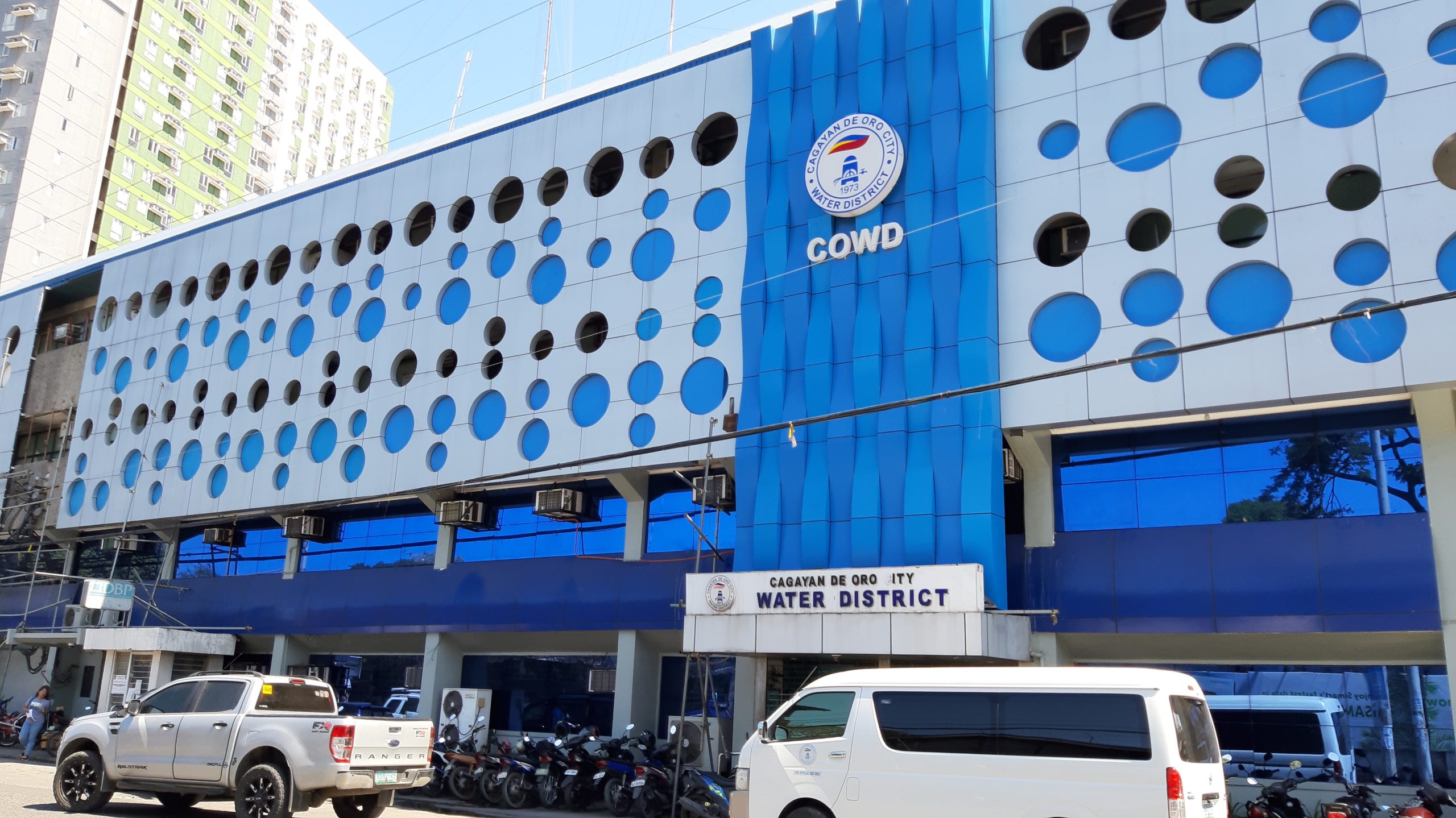Letters .
HOW do we react to the raging issues between our President and our beloved Bishops? Do we disregard them as pure exercise in futility or join the fury and exacerbate what is an already complicated situation?
Members of the National Clergy Discernment Group reflected on this dilemma and in our prayerful discernment identified key perspectives in reading the “signs of the times.”
The first is to look at the prevailing situation through the eyes of faith. The Lord must have a purpose for letting these things to happen at this point of time of our history particularly as we approach the 5th centenary of the Christianization of our people. In the state of confusion and uncertainty, amidst the din of anger and violence, confronted by pain and disillusionment, we just have to make a leap of faith. We must affirm our faith that the forces of good will prevail over all existing adversities. We have to fight evil with the strength of God’s will and overcome darkness with the light of our faith.
The second is to uphold the value of “freedom of religion” which, according to John Paul II, is the “mother of all freedoms.” And in the light of the Philippine constitution, this basic freedom implies respect for every belief and creed from all institutions of our society. Any form of bigotry coming from both the political and religious leaders becomes violative of the fundamental right to “freedom of religion” and to respect the diversity of faiths and religions in our land.
Third, the President has alleged that he directs his tirades against the Catholic hierarchy’s institutionalized lifestyle that thrives on wealth and power. But the Church is not only an “institution.” It is, first and foremost, the “people of God.” It includes the lay faithful who hold the key to the evangelization of the secular arena of our society. The laity’s voice needs to be heard in the conflicts that have polarized our political and religious leaders. The lay has to come of age to promote and defend the Christian faith.
Fourth, the Church hierarchy will have to be responsive to all the above issues by viewing them as feedback coming from the national leadership of the country. They have to do some cleaning of their own backyard and eradicate the various institutionalized practices that have scandalized the laity. On the other hand, the political leaders must take the Church interventions as feedback from the ground that need government attention. But at the end of the day, the Church needs to be converted and re-evangelized so that it becomes an effective sign of “God’s Kingdom.
And fifth, the Bishops, Clergy, and Religious have to put their acts together and prioritize immersion with the excluded and poor in their mission and ministry. At judgement day, the Church of the Poor will be the ones to attest to our credibility as shepherds of the flock. Let the poor and the marginalized be the forces to renew the Church as an institution, not our reactions to external threats and attacks. With our people, let us travel as co-pilgrims along the road of conversion and transformation.
We pray that these faith-perspectives spark rays of creative hope and transforming action. –Msgr. Manny Gabriel, convenor, National Clergy Discernment Group, mggabriel_pcc@yahoo.com
Military Training for Kids?
MEMBERS of the House of Representatives are clearly on a roll, in passing anti-children legislation, that is.
As the House Committee on Basic Education and Culture passed on first reading a bill seeking to revive the mandatory Reserve Officers Training Corps (ROTC) for Grades 11 and 12 in public and private schools nationwide.
As the nation is still reeling from the haphazard passage of House Bill No. 8858 which seeks to lower the minimum age of criminal responsibility from 15 years old to 12, the House of Representatives is at it again – now wanting to impose military training for children, essentially, as those in senior high school are aged below 18 years old.
We reiterate our earlier position: Military training cannot be mandatory for children. To revive mandatory ROTC is to backtrack on various developments that have taken years to come into fruition. Just like the passage of the bill lowering the minimum age of criminal responsibility, mandatory ROTC is also bereft of any scientific evidence.
Our legislators seem to have forgotten how in March 2001, University of Santo Tomas student Mark Welson Chua was killed allegedly by his superiors in the ROTC, a grave incident that catalyzed the passage of the National Service Training Program (NSTP) Act, which has made participation to the ROTC optional. Chua was allegedly killed by his ROTC advisers whom he reportedly exposed for mismanagement of funds.
Before the passage of the NSTP Act, college students were made vulnerable to the corruption and physical abuse under the ROTC. To introduce mandatory military training for senior high school students aged 16 to below 18 is tantamount to reneging on past international commitments that protect children from compulsory recruitment into the armed forces.
As state party to the UN Convention on the Rights of the Child (UNCRC), the Philippines has a legal and moral obligation to promote and enact policies that place utmost importance to the best interest of the child. In 2008, the United Nations Committee on the Rights of the Child told the Philippine Government that military training for high school students, “promotes militarism and is contrary to the peacebuilding education of the State party and to the spirit of the Optional Protocol [on children situated in armed conflict].” The Committee further recommended “the abolition of military content from the training, and to promote instead the values of peace and respect for human rights within the education system.”
Introducing mandatory ROTC is also incongruent with existing national and international laws. Using campuses for military training and, for some campuses the provision of a barracks, is inconsistent with Rules 22-24 of the International Humanitarian Law and other treaties that restrict the use of schools for military purposes.
Republic Act 7610 or the Special Protection of Children Against Abuse, Exploitation and Discrimination Act also states that “public infrastructure such as schools, hospitals, and rural health units shall not be utilized for military purposes such as command posts, barracks, detachments, and supply depots.” Article X, Section 22(b) of the same law specifically prohibits the recruitment/use of children in armed conflict. It states, “Children shall not be recruited to become members of the Armed Forces of the Philippines or its civilian units or other armed groups, not they be allowed to take part in the fighting or used as guides, couriers, or spies.”
Experts also stress that introducing a militarist course in senior high school, at a time when students are at the height of their adolescence period, may also make them vulnerable to developing various risk behaviors. Children are sensitive to adverse and negative experiences that could impact them throughout their lifetime.
Why is Congress currently staging a continued attack against Filipino children through bills that are dangerous for their welfare?
We reiterate: Instead of pushing for this dangerous move that will indubitably trample upon children’s rights, we recommend that the government review the NSTP Act and see how it can improve what is actually an already good law that already consistently adheres to international obligations, where military training for college students is voluntary, not mandatory. Instead of instilling militarist lessons on children, we urge the government to again follow UNCRC’s recommendation in 2008 “to develop and implement training programmes and campaign to promote the values of peace and respect for human rights and include the subject of peace education and human rights as a fundamental subject in the education system.” –Richard Dy, Child Rights Network, pr@childrightnetwork.ph
Disclaimer
Mindanao Gold Star Daily holds the copyrights of all articles and photos in perpetuity. Any unauthorized reproduction in any platform, electronic and hardcopy, shall be liable for copyright infringement under the Intellectual Property Rights Law of the Philippines.











